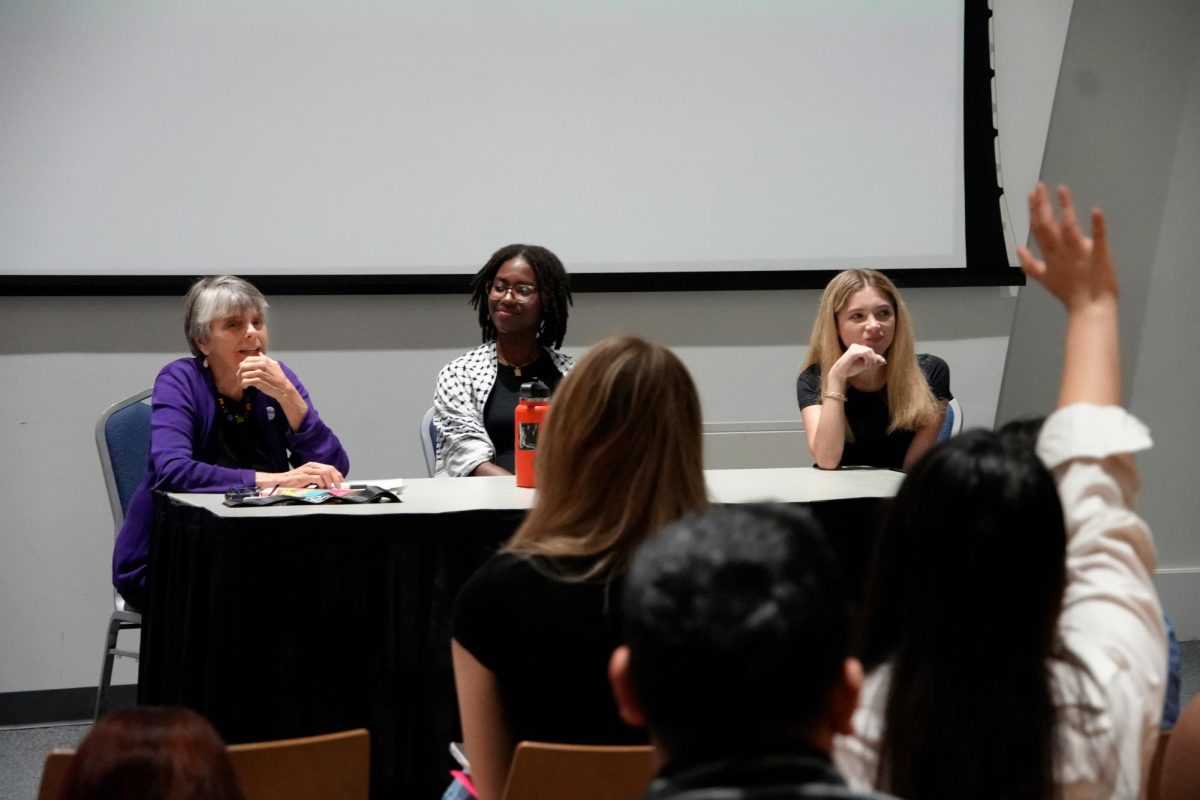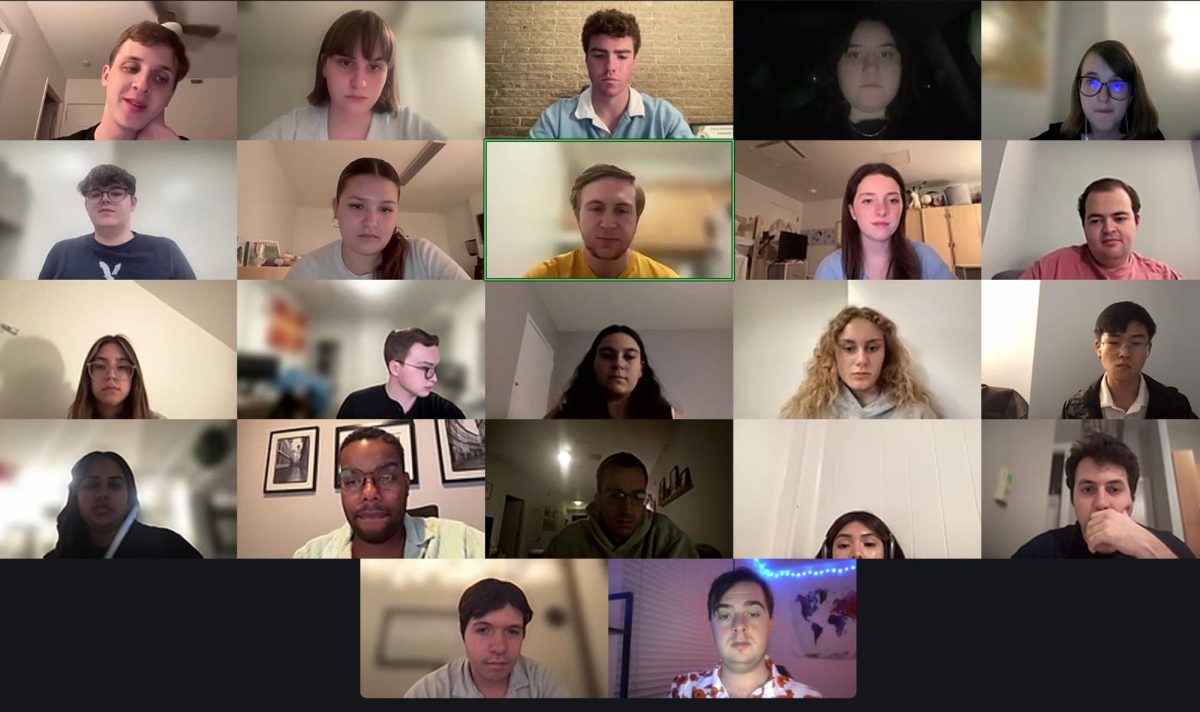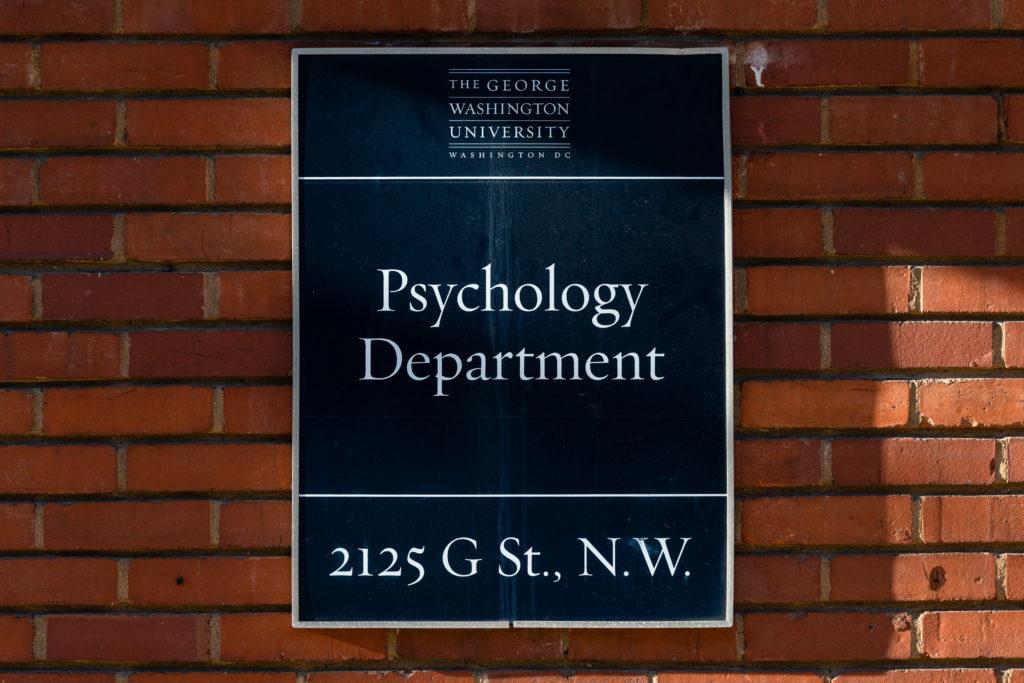
GW’s top officials got some fresh air during Earth Day on Wednesday to speak while students and representatives from sustainability companies mingled under a big white tent in Kogan Plaza.
The Earth Day Fair invited student organization leaders, community leaders and companies to promote their causes. Prominent administrative figures and sustainability leaders on campus each offered more information about sustainability at GW.
“GW wants to teach sustainability and also walk the talk,” said Provost Steven Lerman. “200 faculty self-identify as working on sustainability-related projects.”
Here’s what you missed while you were tending to your compost bin:
1. Prioritizing sustainability
Lerman pointed out economics professor Ram Fishman, who is involved in projects to reduce energy and waste at residence halls.
Lerman added that civil and environmental engineering professor Rumana Riffat takes her students on field trips to wastewater treatment plants to “help them make the actual connection between the theory of waste treatment and its actual practice.”
Executive Vice President and Treasurer Lou Katz rounded up the University’s current projects to stay sustainable.
“We have more than 30 buildings under renovation for the Eco-Building Program. We are composting dining hall food, building community gardens and growing edibles,” Katz said. “Sustainability is really a comprehensive effort.”
Katz also mentioned the Capital Partners Solar Project, which provides solar power to GW, American University and GW Hospital. The solar farm in North Carolina will power more than 50 percent of GW’s electricity.
Kathleen Merrigan, the executive director of sustainability, went up to the podium to talk about GW’s academic sustainability programs.
“GW has one of the most politically active student bodies, so you should use your studies and maximize what you know to shake up the world,” Merrigan said.

2. Green Leaf courses
Lerman wants to bring sustainability back into the classroom, too.
“Apart from student organizations, we hope that students can also get involved academically,” Lerman said.
GW has about 400 undergraduate and graduate level courses that have to do with sustainability, he said. GW offers a minor in sustainability, which started in 2012.
3. Student contest winners announced
Meghan Chapple, the director of GW’s sustainability office, announced four winners to the Eco-Equity challenge, which launched in January to encourage students to partner with local community organizations and solve environmental issues.
“Sustainability also has a social equity aspect,” Chapple said. “Often, environmental issues have a higher burden on poor people. There are a plenty of environmental justice issues in the areas of food distribution, trash and toxic pollution for instance.”
One of the four winning projects this year is Project Lily Pad, which is partnering with Living Classrooms and D.C. Public Schools to design and build wetland islands to promote environmental education and preserve the Anacostia River along Kingman Island.




